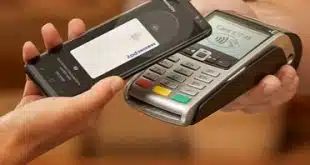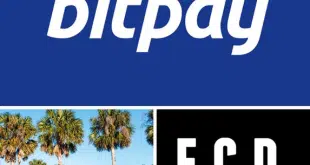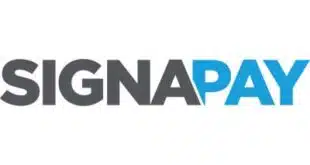Some ISOs are high on selling acceptance services to marketers of this hemp derivative. The profit potential could be big, but so are the complications.
The potential payoff from high-risk CBD merchants is stoking the acquiring industry’s enthusiasm.
Almost a year after the passage of the 2018 Farm Bill that legalized the cultivation and sale of hemp-derived products at the start of this year, the acquiring industry’s efforts to add CBD-selling merchants to their portfolios have been growing.
The potential for large profit margins from these high-risk merchants is motivating many independent sales organizations and acquirers to sell merchant services to them—or at least to consider how it might be done. CBD, the shortened name for cannabidiol, is an ingredient that is derived from hemp but causes no high. CBD’s popularity as a treatment for everything from pain to anxiety has exploded in the past year.
The product’s appeal for acquirers, however, is not without caveats. Issues payments providers may encounter include securing an acquiring bank that accepts CBD merchants, complying with payments and governmental regulations, and evaluating and then monitoring CBD merchants once boarded.
“The banks are having a tough time now because it’s so new,” said Travis Chrisman, president and cofounder of Coastal Pay, a Carlsbad, Calif.-based independent sales organization. Speaking in September at the Western States Acquirers Association annual conference in Rancho Mirage, Calif., Chrisman said underwriting guidelines are challenging for banks.
“CBD is the largest emerging market in the world,” said Chrisman. “There’s a lot of attention. A lot of people are wanting to jump in.” While boarding CBD-selling merchants may be profitable, the challenges to getting there are many and complex. “The biggest factor is banking,” Chrisman said.
The challenge is understanding merchant services for CBD sellers, said Jason Putnam, senior vice president and director of merchant services at Farmers Branch, Texas-based The Independent Bankers Bank N.A. The banks not only have to evaluate the merchant, they have to do so from the perspective of complying with their regulators, such as the Office of the Comptroller of the Currency, he said.
“We have to be on par with the regulators and we have to make sure they understand what’s going on,” Putnam said. “We want to help our banks do this.” As a banker’s bank, TIB provides correspondent-banking services to more than 1,600 independent community banks.
Regulators like when banks adhere to a standard because it can facilitate compliance, he said, adding, “The biggest thing is making sure the regulators are OK with how we handle this.”
Putnam says his bank is evaluating merchant services for CBD-selling merchants, but it has not “stepped into this world.”
The appeal of these merchants for banks and acquirers is largely rooted in the profit potential. “If they can overcome the risk aspect, if they can explain what the scenario is, they would be very comfortable,” Putnam says of bank interest.
That interest is apparently high in many sectors. “I’ve never seen anything like this,” Todd H. Halpern, a partner at Venable LLP, a Washington, D.C.-based law firm. “I have never seen so much hype over a single ingredient with so many potential applications in food, cosmetics, and not just dietary supplements.”
In addition to banking regulation, there are other legal issues to consider. “From a legal perspective, the issue of the legality of CBD continues to be complicated,” says Andrew E. Bigart, also a partner at Venable.
‘Be Really Careful’
While CBD products sit astride several legal issues, the major one is that the 2018 Farm Bill removed hemp, but not cannabis, from the controlled-substance list, Bigart says. There is a complicated legal definition of hemp and products derived from it, but for payments providers the primary requirement is that CBD products contain no more than 0.3% THC, the high-producing ingredient in marijuana. And they must originate from hemp plants, not marijuana ones.
“The significance of the Farm Bill was that it created an exemption from the definition of marijuana for ‘hemp’ which is defined in the statute,” Halpern says. “To be hemp, the cannabis plant that is the source of the product must have a THC content of no more than 0.3%. That’s important because it’s the beginning of the analysis to determine if the CBD product being sold is lawful.”
Related legal issues have to do with the liability associated with not meeting Drug Enforcement Administration and Food and Drug Administration regulations. Another complication arises from litigation over false advertising, which can come from the Federal Trade Commission, state attorneys general, or private lawsuits, Halpern says.
Further complicating the boarding of CBD-selling merchants is that these products are not legal in all 50 states. Though the 2018 Farm Bill created a category of hemp and exempted it from federal definitions of a controlled substance, the bill did not pre-empt state definitions. “It’s important for banks and payment processors and their merchant-service providers to understand that legal framework,” Bigart says.
And, once the merchant is boarded and actively selling CBD products, the acquirer’s job is still not done. As with many high-risk merchants, the acquirer must monitor the merchant to ensure it adheres to the stipulations of the merchant-services agreement. This may also be an issue for existing merchants that add CBD products to their inventory.
In these agreements, Halpern suggests including the ability to get as much information as possible from the merchant to get the necessary oversight and increase the flexibility to terminate the relationship if necessary. This is particularly important if the legality of CBD changes or there are changes in the interpretation of the law.
“You need to be really careful as acquiring banks that the THC level is below the guidelines,” Sharon Lampley, Mastercard Inc. director of acquirer-channel management, said at the WSAA conference.
Another complication: the merchant may be located in a state that allows CBD sales, but may sell online into a state that doesn’t, Lampley says. CBD is illegal in South Dakota, for example. Such sales constitute interstate commerce, which is governed by federal regulations.
‘Little Things’
Another factor for ISOs and acquirers to weigh is that there are no merchant category codes for merchants selling CBD products, Lampley says. The MCC is assigned to the merchant type. A gym that sells CBD products would be assigned the MCC for a gym.
And, just as with any other merchant, the merchant-services provider has to consider how to monitor the merchant to ensure violations of card-brand rules do not occur, Lampley said.
Lampley suggested acquirers monitor what their CBD merchants sell. “It’s all of these little things you have to be aware of as an ISO and the merchant you’re bringing on,” she said. The key for growing this business is consistency in standards, she said. “We continually look at this environment. As it grows and becomes more consistent, we can change our rules accordingly.”
But merchants aren’t absolved of responsibility. Card-brand penalties for noncompliance can run into the thousands of dollars. Merchants also may face legal issues on their own. Merchant processor Square Inc., which announced a CBD program in October, says generally that it monitors its sellers closely for compliance.
For example, the San Francisco-based company conducts “enhanced due diligence,” but didn’t say what that involves. The review ensures sellers meet CBD-specific obligations, Square says, and it requires them to attest to and be responsible for local, state, and federal law compliance.
Square’s prices are 4.2% plus 30 cents per online and in-app transaction. In-person fees are 3.9% plus 10 cents for tapped, dipped, or swiped transactions. Keyed and card-on-file fees for CBD sellers are 4.8% plus 15 cents.
‘This Will Be Huge’
Though Coastal Pay does not post its CBD pricing online, Chrisman says an agent could make about 100 basis points. A basis point is one-hundredth of a percent.
Coastal Pay asks CBD-selling merchants for the typical documentation associated with a high-risk merchant account, Chrisman says. That may include six months of card-processing statements and three months of bank statements, plus verification the merchants have valid certificate-of-analysis certifications that indicate an accredited laboratory tested the amount of CBD in each product.
Courting and boarding merchants that sell CBD products is very complex and bound to evolve through the sheer impact of regulation and competition. But that’s not enough to deter some.
“This will be huge,” Chrisman says. “It will just get better and better.”






